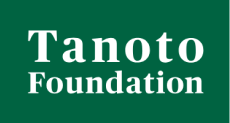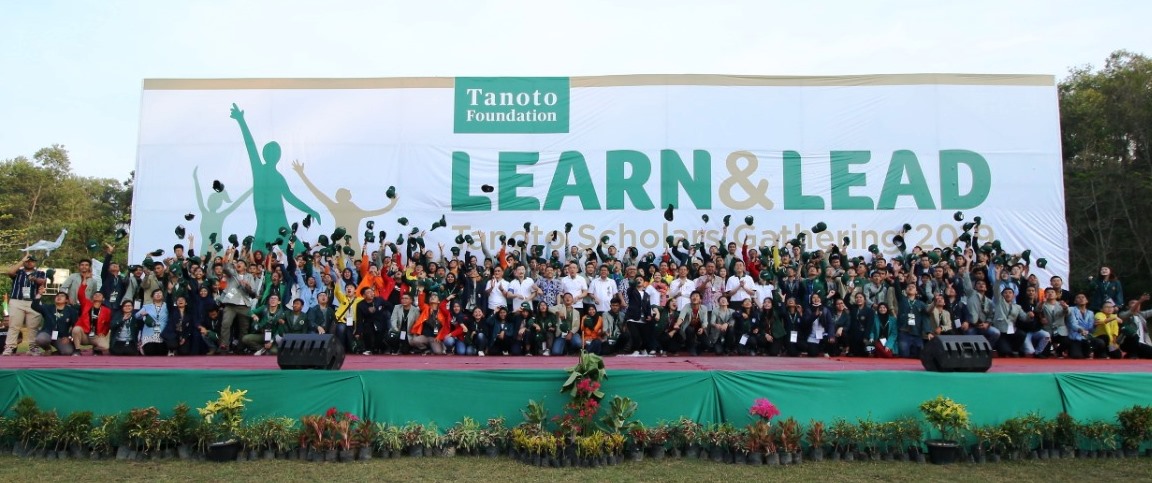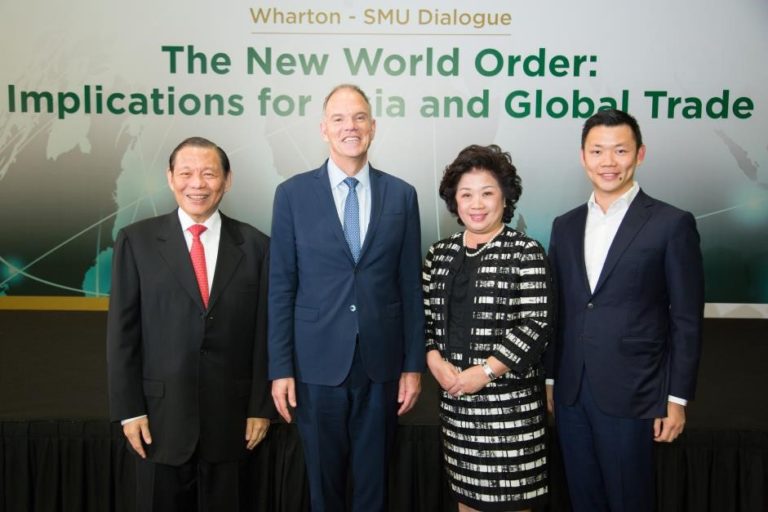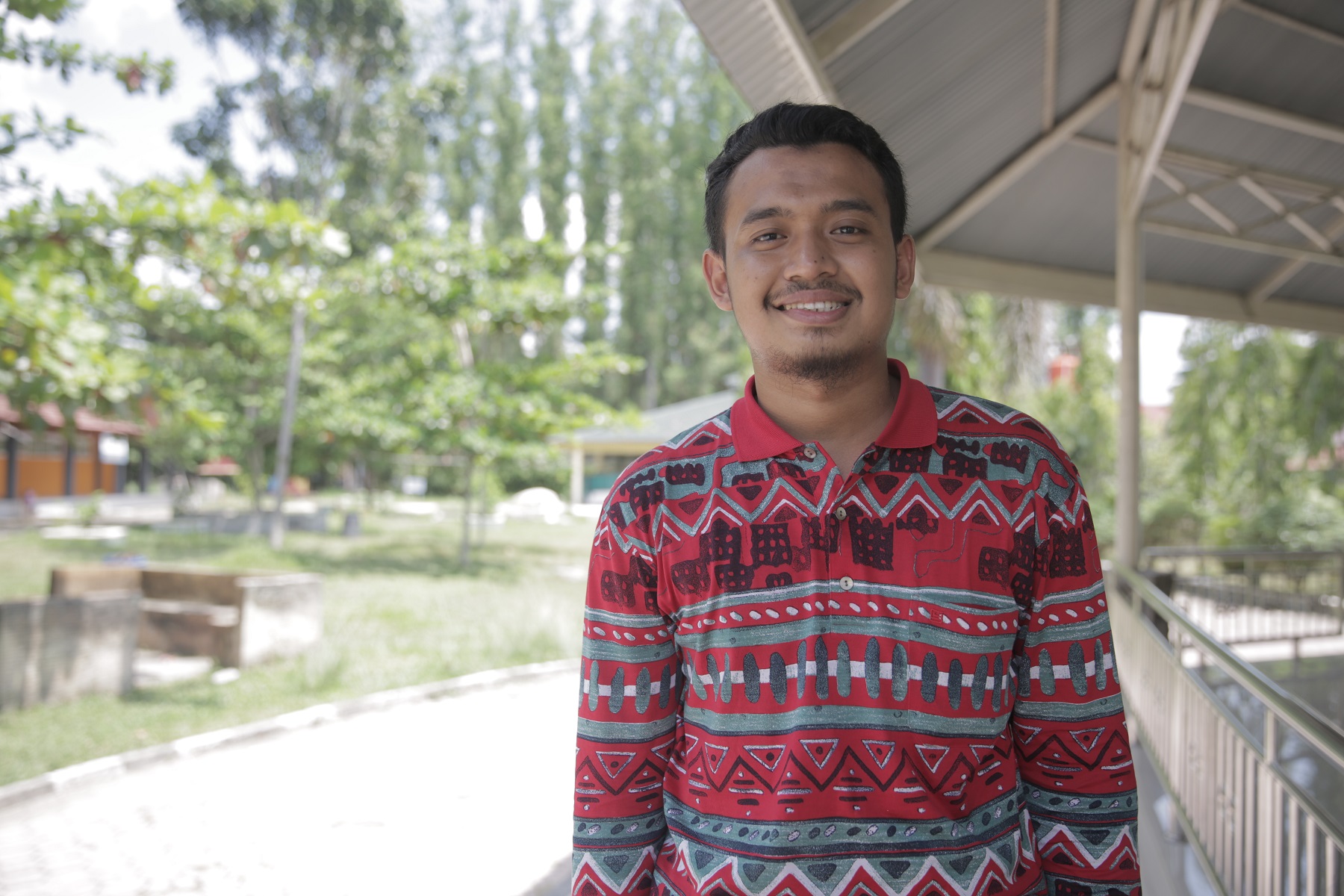https://www.instagram.com/p/B1ye30kBHHn
A total of 221 TELADAN program participants, or Tanoto Scholars, recently attended the 2019 Tanoto Scholars Gathering (TSG) held at Pangkalan Kerinci in Riau from August 30 to September 2.
The participants came from 19 universities in Indonesia, as well as from Nanyang Technology University in Singapore and Bond University in Australia.
TELADAN is a leadership development program designed to prepare Indonesia’s future leaders by equipping them with the various skills required to contribute positively to their living and working environment in the future.
As part of the program, an annual TSG is held to provide opportunities to the Tanoto Scholars to strengthen their spirit to learn and lead, broaden their insights on sustainable development, develop networks and hone their soft skills.
TSG 2019 marks the tenth edition of the event since it was first held in 2010. Aryanti Savitri, Tanoto Foundation Head of Scholarship and Leadership Development, was present to open TSG 2019, along with Satrijo Tanudjojo, Global CEO of Tanoto Foundation, and Aras Mulyadi, Rector of Riau University.
On the first day, the participants attended an inspirational talk with Mulyadi and Tanudjojo, who motivated the scholars to become successful future leaders.
“There are three things that a leader must have. The first is curiosity, the second is the ability to understand social dynamics, and the third is self-awareness about your strengths or weaknesses,” Satrijo Tanudjojo said.
https://www.instagram.com/p/B11mz_jBslP
Participants also learned about the sustainability practices which are implemented within the RGE Group of companies, through visits to the RGE Technology Centre, APRIL paper mill, APR rayon mills, Asian Agri palm oil plantations, acacia and eucalyptus nurseries, and RAPP’s community development center.
“During a visit to an oil palm plantation, I gained a lot of new knowledge because I am an accounting major. Now I have an idea of how to choose good oil palm seeds. For example, if the leaves of an oil palm are yellow, it means its seeds won’t be good because the photosynthesis process was not optimal. I also learned that owls are good natural predators for controlling mice population in the plantations,” said Sherly Valencia, Tanoto Scholar from Jambi University.
https://www.instagram.com/p/B14HVKRhhcp
The TSG 2019 participants also honed their leadership and teamwork skills through various outward bound activities on Day 2.
“There was a Cup Tower game which challenged us to build the highest tower we could using paper cups, which does not collapse even where there are strong winds. Through this activity, I gained an understanding about the importance of concentrating and not rushing, while carrying out a task.
“I also learned how to work together with team members in designing and implementing successful strategies,” said Suomi Bologni Aprilina Simorangkir, a Tanoto Scholar from the Bandung Pulp and Paper Technology Academy.
In the middle of the session, the participants were surprised by the arrival of Mohamad Nasir, the Indonesian Minister of Research, Technology and Higher Education, who was there to motivate them. The minister also took the time to answer several questions from the Tanoto Scholars.
“I am very happy to meet the future leaders of the nation. With you, I am sure that Indonesia can compete and make a more tangible contribution in the world.
“You must be prepared to face tight competition, strong challenges and obstacles. Remember to lead the world and become a generation of quality. You don’t just need to be able to read, write or count, you must be able to work with others as collaboration is the most important foundation for realising all dreams and hopes for the future,” said Mohamad Nasir.
https://www.instagram.com/p/B17hhXeBD2O
The third day was also a valuable opportunity for the Tanoto Scholars as they met Anderson Tanoto, member of the Tanoto Foundation Board of Trustees, who shared his experiences about useful skills to develop during university which can support future success.
“The knowledge we gain beyond academia is very important for our success in the future. Therefore, join an association or organisation. Joining one will help us acquire various skills and a lot of knowledge. Also make it a habit to read books as a source of knowledge. Don’t forget to keep your body fit by exercising, make friends and build networks which will be useful in the future,” he said.
The TSG 2019 participants also heard from various speakers who have succeeded in their respective fields such as Bayu Krisnamurthi, Professor from Bogor Agricultural University cum former Indonesian minister; Nur Agis Aulia, Tanoto Scholar alumnus cum founder of Jawara Farm; and Untari Febrian Ramadhani, global winner of Ideas for Action 2018.
The line-up of speakers also included Nila Tanzil, founder of Taman Bacaan Pelangi; Panut Mulyono, Rector of Gadjah Mada University; Budi Setiyono, Vice Rector of Diponegoro University; Wisnu Nugroho, Editor in Chief of Kompas.com; and Mikha Tambayong, Indonesian Heart Foundation Ambassador.
TSG 2019 concluded with a gala dinner attended by all the participants, Tanoto Foundation staff and invited guests.
See you at TSG 2020 next year!





